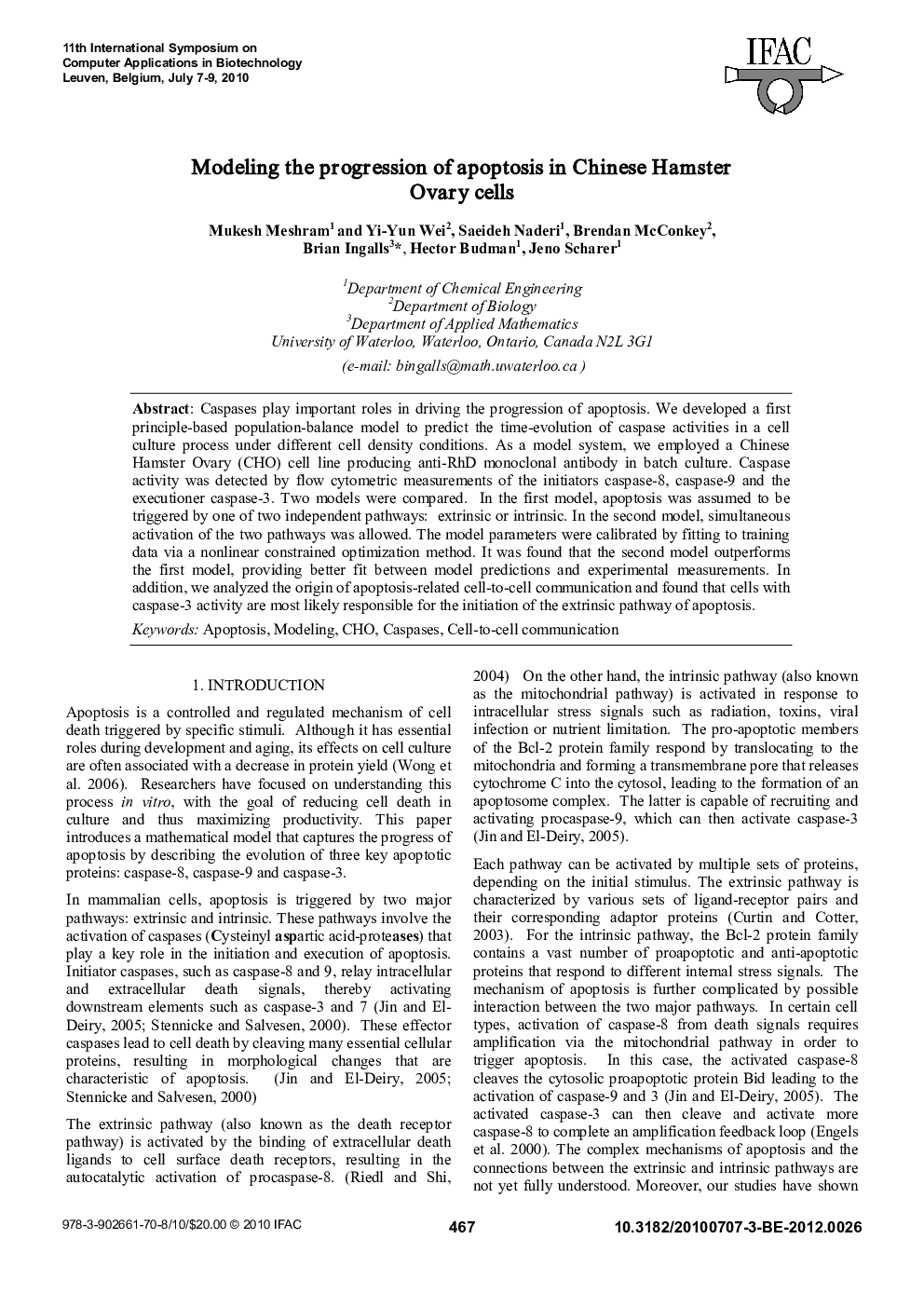| کد مقاله | کد نشریه | سال انتشار | مقاله انگلیسی | نسخه تمام متن |
|---|---|---|---|---|
| 720338 | 892292 | 2010 | 6 صفحه PDF | دانلود رایگان |

Caspases play important roles in driving the progression of apoptosis. We developed a first principle-based population-balance model to predict the time-evolution of caspase activities in a cell culture process under different cell density conditions. As a model system, we employed a Chinese Hamster Ovary (CHO) cell line producing anti-RhD monoclonal antibody in batch culture. Caspase activity was detected by flow cytometric measurements of the initiators caspase-8, caspase-9 and the executioner caspase-3. Two models were compared. In the first model, apoptosis was assumed to be triggered by one of two independent pathways: extrinsic or intrinsic. In the second model, simultaneous activation of the two pathways was allowed. The model parameters were calibrated by fitting to training data via a nonlinear constrained optimization method. It was found that the second model outperforms the first model, providing better fit between model predictions and experimental measurements. In addition, we analyzed the origin of apoptosis-related cell-to-cell communication and found that cells with caspase-3 activity are most likely responsible for the initiation of the extrinsic pathway of apoptosis.
Journal: IFAC Proceedings Volumes - Volume 43, Issue 6, 2010, Pages 467-472